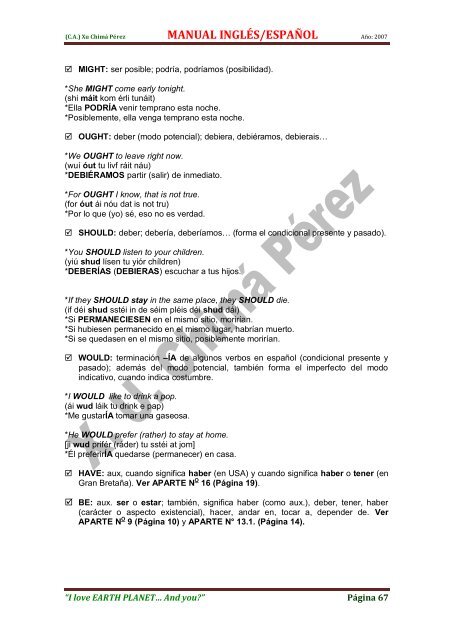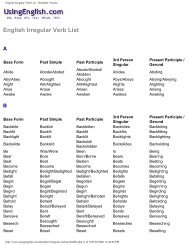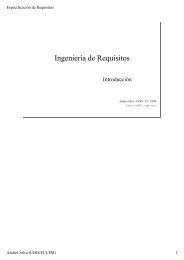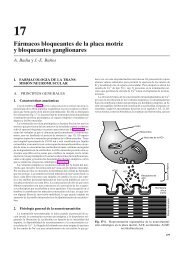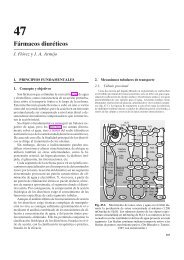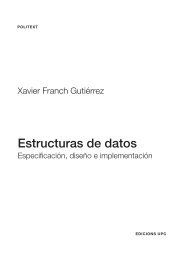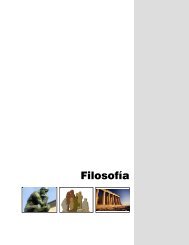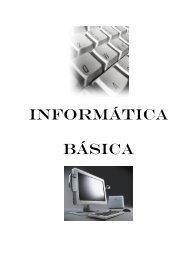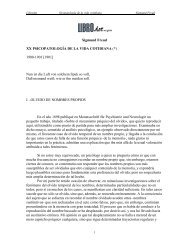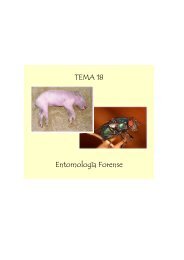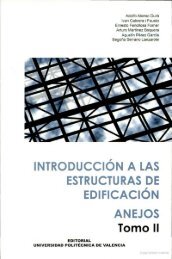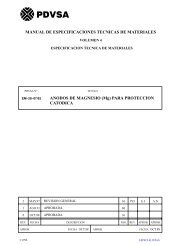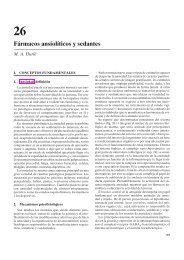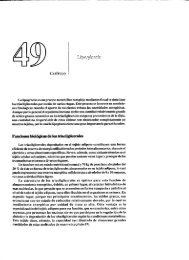MANUAL INGLÉS/ESPAñol - sisman
MANUAL INGLÉS/ESPAñol - sisman
MANUAL INGLÉS/ESPAñol - sisman
Create successful ePaper yourself
Turn your PDF publications into a flip-book with our unique Google optimized e-Paper software.
(C.A.) Xu Chimá Pérez <strong>MANUAL</strong> <strong>INGLÉS</strong>/ESPAÑOL Año: 2007<br />
MIGHT: ser posible; podría, podríamos (posibilidad).<br />
*She MIGHT come early tonight.<br />
(shi máit kom érli tunáit)<br />
*Ella PODRÍA venir temprano esta noche.<br />
*Posiblemente, ella venga temprano esta noche.<br />
OUGHT: deber (modo potencial); debiera, debiéramos, debierais…<br />
*We OUGHT to leave right now.<br />
(wuí óut tu livf ráit náu)<br />
*DEBIÉRAMOS partir (salir) de inmediato.<br />
*For OUGHT I know, that is not true.<br />
(for óut ái nóu dat is not tru)<br />
*Por lo que (yo) sé, eso no es verdad.<br />
SHOULD: deber; debería, deberíamos… (forma el condicional presente y pasado).<br />
*You SHOULD listen to your children.<br />
(yiú shud lísen tu yiór chíldren)<br />
*DEBERÍAS (DEBIERAS) escuchar a tus hijos.<br />
*If they SHOULD stay in the same place, they SHOULD die.<br />
(if déi shud sstéi in de séim pléis déi shud dái)<br />
*Si PERMANECIESEN en el mismo sitio, morirían.<br />
*Si hubiesen permanecido en el mismo lugar, habrían muerto.<br />
*Si se quedasen en el mismo sitio, posiblemente morirían.<br />
WOULD: terminación –ÍA de algunos verbos en español (condicional presente y<br />
pasado); además del modo potencial, también forma el imperfecto del modo<br />
indicativo, cuando indica costumbre.<br />
*I WOULD like to drink a pop.<br />
(ái wud láik tu drink e pap)<br />
*Me gustarÍA tomar una gaseosa.<br />
*He WOULD prefer (rather) to stay at home.<br />
[ji wud prifér (ráder) tu sstéi at jom]<br />
*Él preferirÍA quedarse (permanecer) en casa.<br />
HAVE: aux, cuando significa haber (en USA) y cuando significa haber o tener (en<br />
Gran Bretaña). Ver APARTE N O 16 (Página 19).<br />
BE: aux. ser o estar; también, significa haber (como aux.), deber, tener, haber<br />
(carácter o aspecto existencial), hacer, andar en, tocar a, depender de. Ver<br />
APARTE N O 9 (Página 10) y APARTE N° 13.1. (Página 14).<br />
“I love EARTH PLANET… And you?” Página 67


